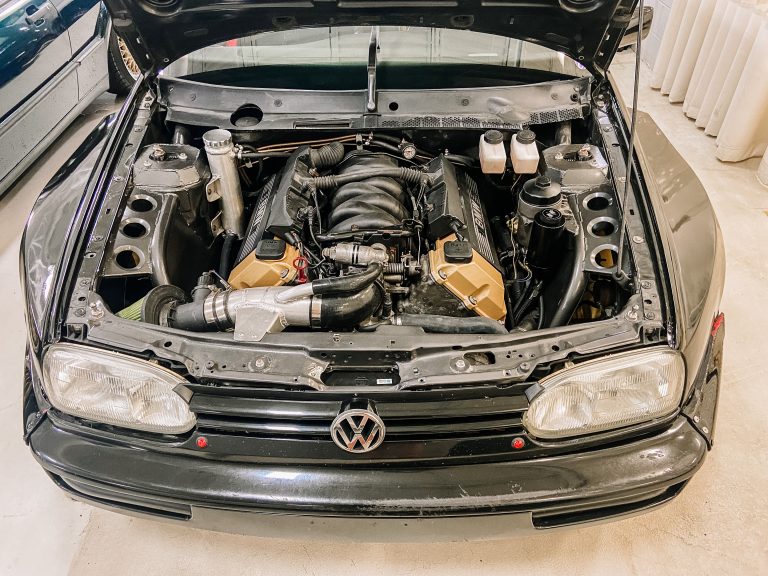BMW cars are not necessarily hard to maintain, but they can be expensive to maintain due to the higher cost of parts and the need for preventative maintenance. The labor involved in maintenance is usually not difficult.
However, BMWs are known for having more advanced electronic components that may require specialized programming and initialization after repairs, replacements, or testing. This can make automotive repairs and maintenance more challenging for individuals without the necessary tools and knowledge. Despite the potential costs and complexities, BMWs are considered reliable due to their high level of engineering and quality.
Overall, while maintenance costs may be higher compared to some other brands, BMWs are still regarded as high-performance vehicles worth the investment.
Bmw Longevity And Care
Maintaining BMW cars can be challenging due to their advanced electronic components that require specialized programming and initialization after repairs. While they are known for their high-performance and quality engineering, BMWs can be expensive to maintain, considering the cost of labor and high-grade parts.
However, with the expertise of a trained mechanic and the right tools, DIY maintenance is possible.
Evaluating Bmw Durability And Reliability
Importance Of Regular Maintenance
Cost Analysis Of Bmw Maintenance
BMW maintenance costs can be high, but the labor involved is usually not difficult. While parts may be expensive, preventative maintenance is crucial to avoiding issues. Ultimately, BMWs are reliable cars that require careful upkeep to maintain their performance and longevity.
When it comes to luxury cars, BMW is undoubtedly one of the most sought-after brands. However, potential buyers often wonder about the cost of maintaining a BMW. In this section, we will break down the expenses associated with BMW maintenance and compare them to other luxury brands.
Breaking Down Bmw Maintenance Expenses
Maintaining a BMW involves various expenses that owners should be aware of. Here is a breakdown of the key costs involved:
- Parts: BMW parts are known to be expensive compared to other brands. This is due to the high-quality materials and advanced technology used in BMW vehicles. Whether it’s for routine maintenance or repairs, the cost of BMW parts can significantly impact overall maintenance expenses.
- Labor: Fortunately, the labor cost for BMW maintenance is usually not as high as the parts cost. Skilled mechanics familiar with BMWs can handle most repairs and maintenance tasks without much difficulty. However, it is essential to choose a reputable mechanic with experience in dealing with luxury vehicles to ensure proper care of your BMW.
- Specialized tools and equipment: Working on BMWs often requires specialized tools and diagnostic equipment. These tools can be pricey, potentially adding to the overall cost of maintenance. However, professional mechanics typically have the necessary tools to effectively service BMWs.
It is crucial to note that the cost of BMW maintenance can vary depending on the model, age of the vehicle, and the frequency of repairs or services needed. Regular maintenance, such as oil changes and inspections, will generally be more affordable compared to major repairs or component replacements.
Comparison With Other Luxury Brands
While BMW maintenance costs can be higher than those of non-luxury vehicles, how does it fare when compared to other luxury brands? Let’s take a look:
| Brand | Parts Cost | Labor Cost |
|---|---|---|
| BMW | Comparatively higher | Affordable |
| Audi | Similar to BMW | Comparable |
| Mercedes-Benz | Similar to BMW | Comparable |
From the comparison above, it is evident that BMW maintenance costs are in line with its luxury counterparts. However, it’s important to remember that luxury vehicles, in general, tend to have higher maintenance costs due to the premium nature of the brand and the advanced technologies incorporated into their vehicles.
When considering the cost of maintaining a BMW, it is essential to weigh it against the overall ownership experience, including performance, comfort, and brand reputation. While BMW maintenance costs may be higher, owners often find that the driving experience and prestige associated with the brand make it worthwhile.
Are Bmw Cars Hard To Maintain?
Maintaining BMW cars can be costly due to their expensive parts and the need for preventative maintenance, but the actual labor involved is usually not difficult. While BMWs are known for their high performance and advanced electronic components, they are reliable vehicles overall.
Understanding Bmw’s Maintenance Reputation
When it comes to luxury car brands, BMW is widely recognized for its exceptional performance and cutting-edge technology. However, many potential buyers often wonder if BMW cars are hard to maintain. Understanding the maintenance reputation of BMW vehicles is crucial for owners to make informed decisions about their investments.
Common Challenges Faced By Owners
BMW cars are known for their high-performance capabilities and advanced electronic components. While this enhances the driving experience, it also means that repairs and maintenance can be more challenging compared to other car brands.
The sophisticated electronic systems in BMW cars require skilled technicians who are well-versed in programming and initializing these components. This expertise is necessary not only for repairs and replacements but also for testing and diagnosing any issues.
One of the common challenges faced by BMW owners is the cost of maintenance. BMWs are well-regarded for their luxury status and superior craftsmanship, but this level of quality often comes with a higher price tag for parts and labor.
Furthermore, BMWs typically require specialized tools and equipment for maintenance, which may not be readily available at every repair shop. This limited accessibility can make it more difficult for owners to find a reputable mechanic who is qualified to work on their BMW.
In addition to the cost and accessibility factors, regular maintenance is essential for BMWs to ensure optimal performance and longevity. Neglecting preventative maintenance can lead to more significant issues down the line, resulting in even higher repair costs.
Despite these challenges, many BMW owners find that the rewards of owning a luxury car outweigh the difficulties in maintenance. With proper care and attention, BMWs can provide an exhilarating driving experience and turn heads on the road.
In conclusion, while BMW cars may present some unique challenges in terms of maintenance, they can be properly managed with the right resources and knowledge. By staying proactive, finding experienced technicians, and adhering to regular maintenance schedules, BMW owners can enjoy the full benefits of their high-performance vehicles for years to come.
Pros And Cons Revealed
When considering purchasing a BMW, one inevitable question arises: “Are BMW cars hard to maintain?” To provide a comprehensive answer, it is important to weigh both the advantages (pros) and the considerations or critiques (cons) of owning a BMW. Let’s dive into the pros and cons of maintaining a BMW.
Advantages Of Owning A Bmw
Owning a BMW comes with numerous benefits that make them highly desirable vehicles. Some of the advantages of owning a BMW include:
- High Performance: BMWs are known for their exceptional performance on the road. From sporty acceleration to precise handling, driving a BMW can be an exhilarating experience.
- Prestige and Status: BMW is a luxury brand that is associated with prestige and status. Owning a BMW can enhance your image and reputation.
- Advanced Technology: BMWs incorporate cutting-edge technology, both in terms of performance enhancements and interior features. From advanced driver assistance systems to state-of-the-art infotainment, BMWs offer a technologically sophisticated driving experience.
- Driving Comfort: BMWs are built with a focus on driving comfort. The well-crafted interiors, comfortable seats, and smooth suspension contribute to a refined and enjoyable ride.
- Resale Value: BMWs tend to have good resale value compared to other vehicles in their class. This means that if you decide to sell your BMW in the future, you may be able to recoup a significant portion of your initial investment.
Considerations And Common Critiques
While there are many advantages to owning a BMW, there are also some considerations and common critiques that should be taken into account:
- Maintenance Costs: BMWs can be more expensive to maintain compared to non-luxury vehicles. The parts for BMWs tend to be pricier, and specialized labor may be required for certain repairs and maintenance tasks.
- Complex Electronics: BMWs are equipped with advanced electronic components that can be challenging to work on. Repairs, replacements, and even testing often require specialized knowledge and equipment.
- Reliability Concerns: There have been some discussions and concerns regarding BMWs’ reliability and potential issues that may arise over time. However, it’s worth noting that BMW has made significant improvements in recent years, and newer models tend to be more reliable.
- Higher Ownership Costs: It’s important to consider that BMWs typically come with higher ownership costs. From labor charges to synthetic oil changes, the overall cost of maintaining a BMW can be higher compared to other vehicles.
Ultimately, whether owning a BMW is worth the maintenance considerations depends on your personal preferences, budget, and driving needs. While BMWs offer undeniable advantages in terms of performance, prestige, and technology, it is essential to be aware of the potential higher maintenance costs and complexities involved.
Optimizing Bmw Maintenance
When it comes to maintaining a BMW, there are various factors to consider to ensure that your car stays in optimal condition. While some may argue that BMWs can be expensive to maintain, with the right strategies and knowledge, you can effectively optimize your BMW maintenance and save on repair costs in the long run.
Tips For Effective Bmw Care
Proper care and maintenance are essential for keeping your BMW running smoothly. Here are some tips to help you optimize your BMW maintenance:
- Regularly change the oil and filters to prevent engine damage and ensure optimal performance.
- Check the tire pressure frequently and rotate the tires as recommended to ensure even wear and improved fuel efficiency.
- Inspect and replace the brake pads and discs when necessary to maintain safe braking performance.
- Keep the exterior and interior of your BMW clean to protect the paintwork and upholstery from damage.
- Follow the recommended maintenance schedule provided by the manufacturer to address potential issues before they become major problems.
Recommended Maintenance Practices
To ensure that your BMW remains in top condition, it is crucial to follow recommended maintenance practices. Here are some practices that can help prolong the lifespan of your BMW:
- Find a trusted BMW specialist or dealership that has experience in servicing BMW vehicles.
- Regularly inspect the battery and electrical system to prevent any potential issues.
- Perform routine checks on the cooling system, including checking coolant levels and inspecting for leaks.
- Take your BMW for regular wheel alignments to maintain proper handling and prevent uneven tire wear.
- Keep up with the maintenance of the suspension system, as worn components can affect the overall comfort and handling of your BMW.
By following these recommended maintenance practices and investing in regular servicing, you can optimize the performance and reliability of your BMW, minimizing the risk of costly repairs in the future.
Frequently Asked Questions For Are Bmw Cars Hard To Maintain
Is A Bmw Expensive To Maintain?
BMW maintenance costs can be expensive due to high-grade parts and complex electronics. Repairs and maintenance can be challenging because of advanced electronic components that require programming and initialization. However, BMWs are reliable cars with high-quality engineering, resulting in less frequent repairs compared to other brands.
It’s recommended to have trained mechanics work on BMWs due to their complexity.
Is It Hard To Maintain Bmw?
Maintaining a BMW can be challenging due to advanced electronic components that require programming and initialization after repair. BMWs are expensive to maintain due to high-grade parts, but they are reliable and have less frequent repairs compared to other brands.
Working on BMWs yourself can be difficult unless you are a trained mechanic with the right tools and knowledge.
What Is The Downside Of Bmw?
The downside of BMW is that it has high ownership costs, including expensive parts and labor. It also has complicated electronics, making it challenging to maintain and repair. However, BMWs are known for their high level of engineering and quality, resulting in less frequent repairs compared to other brands.
Are Bmw A Reliable Car?
Yes, BMWs are reliable cars due to their high level of engineering and quality. While repairs can be expensive, the precision in design means less frequent repairs than other brands. BMWs are not difficult to work on but might require training and specific tools.
Conclusion
Maintaining a BMW may come at a cost, but it doesn’t necessarily mean that it is hard to maintain. While parts can be expensive, the labor required is usually not difficult. Additionally, BMWs are known for their high-grade engineering and quality, making repairs less frequent compared to other brands.
Though automotive repairs and maintenance can be challenging due to the advanced electronic components, a trained mechanic armed with the right tools and knowledge can handle the job. So, while there may be higher ownership costs, BMWs remain reliable and worth considering for their performance and quality.






